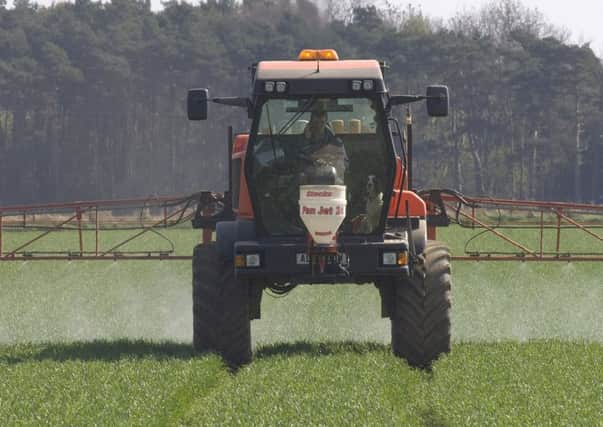EU trade barriers costing UK dear in fertilisers


The report, which was commissioned by the Irish Farmers Association (IFA) and carried out by the US-based International Food Policy Research Institute (IFPRI), also claimed that “price fixing and cartels might be operating in the highly-concentrated markets such as Western Europe.”
Currently, seven major firms control more than 93 per cent of the ammonium nitrate market in Europe and with this level of concentration in a small number of operators, the IFPRI report said there was a need to “further examine existing pricing behaviour and potential market power exertion in the industry.”
Advertisement
Hide AdAdvertisement
Hide AdSpeaking in Brussels at the launch of the report, IFA chairman Jer Bergin called for an urgent investigation by the EU Commission into the possibility of a cartel operating. As a first step to cutting fertiliser bills for farmers, he said the Commission should abolish import duties and border taxes.
The removal of those barriers has been estimated could reduce farmers’ fertiliser bills by at least 5 per cent. For farmers whose commodity prices were on the floor, he said, that would be a welcome move. “Fertilisers are farmers’ second highest expenditure item after feed and any reduction in price would help.”
After meeting his fellow countryman, Phil Hogan who is now the Agricultural Commissioner, Bergin called on the Commission to take immediate action.
In looking at price movements in recent years, the report highlighted the fact that fertiliser prices in Europe had increased by 123 per cent between 1970 and 2002, while prices in other countries like Brazil had decreased by 65 per cent. In trading terms, the report pointed out that farmers in other countries such as in the Ukraine and Russia with access to cheaper fertiliser ended up with lower production costs. In recent years, grain from the Baltic countries and the Black Sea region have become increasingly competitive.
Bergin’s IFA colleague, James McCarthy claimed the ongoing concentration of Europe’s fertiliser manufacturing industry, coupled with greater vertical integration of the sector’s supply chain, had seen farmgate fertiliser prices increase at an unjustified rate.
